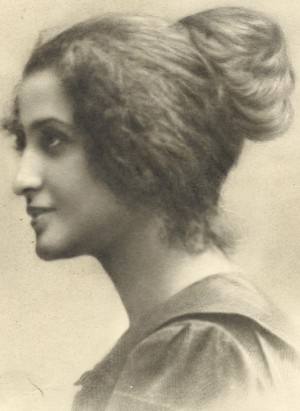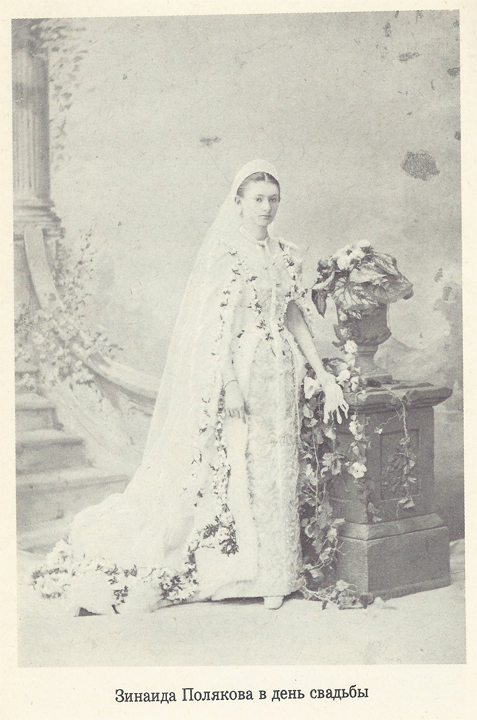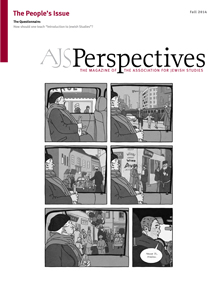
Kalish's narrative offers more than a trivial description of everyday dress; it reveals how gender functioned as a principle for regulating social behavior and enforcing hierarchies in her family. It also suggests that even the strictest households like the Vurke court had space for subversion, but also that the community was quick to discipline transgressors like Aunt Tsiyvele with "malicious murmuring." Under tremendous pressure, she reluctantly banished her "actress dress" to her closet, never to wear it again.
Gender functioned as an organizing principle in every sphere of Jewish society. Gender regimes (to borrow R. W. Connell's concept)—from family to work, religious, and educational institutions—dictated the expectations of social relations, norms, and behaviors based on perceived differences between men and women. Jewish marital conflicts invariably featured accusations that a spouse had failed to abide by the rules of these gendered arrangements. Take, for example, the Broun case that came under review by His Imperial Majesty's Chancellery for the Receipt of Petitions, an office that issued separate passports: Iosif Broun, a veterinary doctor from the town of Shuia (Vladimir Province) castigated his wife for her failures in their marriage, blaming the deaths of three children on her lack of desire to breastfeed and on her "abnormal way of life with endless card games." His wife Shura (Sonia) Broun countered that her husband was the failed parent for he had refused to contribute "expenses for the upbringing of the children." In each instance, the couple invoked normative gender ideals as their primary point of reference.

Gender, though allegedly "natural," had to be maintained through continuous and, in the words of Judith Butler, "compulsory performance." The Moscow diaries of Zinaida Poliakova (1862–1952), daughter of the wealthy banker and railroad mogul Lazar Poliakov, chronicle the daily activities that reinforced her gender roles as a Russian noblewoman, a status conferred through her father's attainment of hereditary nobility. Like Russian elite women of her day, Poliakova performed her cultivated self to perfection: she spoke several foreign languages including French and English, dressed in the latest Parisian fashion, danced the newest waltzes at balls, reported the hottest society gossip (to be sure, with the proper feminine sensibilities of empathy, pity, and shock), and displayed the exemplary social etiquette and grace expected of noble women. Rarely did she stray from the gendered scripts— in striking contrast to those exceptional Russian noblewomen who rebelled by pursuing higher education in universities or by joining a revolutionary movement.
As Poliakova's diaries demonstrate, gender never existed by itself: masculinity and femininity always intersected with other vectors such as class, age, and religion (what Kimberlé Crenshaw has aptly termed "intersectionality"). Despite being thoroughly integrated into Russian elite society, Poliakova remained a Jewish woman, subject to the confessional laws of the empire and religious laws that governed her household. Her mother kept a strict kosher home, refusing to violate any dietary laws for the sake of their social life. For all the harsh criticisms of her mother's fanaticism, Poliakova kept a bitter record of how carefully she observed the laws: "Today, we drank black coffee with sugar instead of cream. It was not very delicious, but then everything has to be done according to what is written in the laws of Moses." Not surprisingly, Poliakova kept a kosher home after she married and moved to France and Italy; the gendered habitus that she internalized proved to be tenacious.
The construction of gender in Jewish society implied sexuality, and any departures from gender norms were considered deviations and disciplined. As in most societies, Jewish women bore the brunt of social stigma for the violation of their chastity. For instance, in 1885 Rakhil Krupen, a cook in the home of a Girsh Kolodnyi of Moscow, accused her employer of violently raping her and firing her when she became pregnant to "hide his vile behavior." Kolodnyi raised the customary defense that he was a "family man" with several children while Krupen "carried on freely" with young men in the courtyard. Other witnesses also testified that the cook "behaved like a streetwalker." The truth is impossible to ascertain from the court case. However, the witnesses clearly assumed that, given Krupen's immodest reputation, she could not have been raped and was solely responsible for her pregnancy. The double standard was most evident in a denunciation to the Medical Administration of Vilna by a certain A. Polevich of Voronov (Lida district) in which he accused Sheina Zlata, of infecting him with a sexually transmitted disease (presumably syphilis). The indignant Polevich demanded that the state "summon her to the hospital immediately to have the disease treated; otherwise, still more innocent men will suffer from this disease because of her."
Gender was also a critical component of the symbolic order of representation, language, and imagery in Russian-Jewish culture. A close reading of Lev Levanda's novel Turbulent Times (serialized in Evreiskaia biblioteka in 1871–73), illustrates how writers employed gender to articulate social and political concerns. The novel explores the conflicted loyalties and choices of acculturated young Jews in two northern Pale of Settlement cities (probably Grodno and Vil'na) during the Polish Uprisings of 1863–64. These former Polish lands, a hotbed of discontent and nationalism, erupted in rebellion against tsarist rule, ending in the loss of Polish cultural and administrative autonomy. Previous scholars have argued that the novel posited a binary choice between loyalty to Russia and Polish nationalism. Focusing exclusively on the male protagonist Arkadii Sarin, scholars have treated him as the embodiment of Levanda's own identification with the Russian state or his failures as the subversion of the author's positive message of Russification. But a gendered reading suggests that the novel was not simply about choosing between two old rivals. Rather, it explored the fantasy of political liberation and longing for a nation that would embrace Jews in comradeship through an affective merger, not only as a matter of law.
Like his Russian contemporaries Feodor Dostoevsky and Nikolai Leskov, Levanda relied on liminal female protagonists, tropes of love, gossip, and folktales (similarly gendered as female) to undermine the dominant political discourses. The author plainly sympathized with Sofia Aronson and Polina Krants, both of whom devoted themselves (whether in practice or in spirit) to a romantic, national cause. This was not necessarily because he favored the Polish uprising (which he treated as a noble but futile endeavor) but because they could throw caution to the wind for one glorious moment like their heroic historical ancestors. As Krants's friend, Meri Tidman described her: "Such a rich poetic nature is never compatible with the difficult prose of Jewish life . . . . I love her as a sister, more than a sister. I love her as a beautiful dream, as a beautiful ideal toward which we strive but cannot attain."
Tidman's voice of reason served to temper the romantic fantasy. As long as Jews remained subjects (not citizens), shunted from one power to another, the whole idea of an affective merger with another nation was absurd:
If it is possible for a subject, a slave, to have a fatherland, then we don't have to rack our brains about what our fatherland is. Today, our fatherland is Russia because it has power, but tomorrow when the power has reverted back to Poland, Poland will be our fatherland. . . . So it does us no good to sign up as Polish or Russian patriots.
Traditional Jewish elders whose public performance feigned acceptance of both state hegemony and Polish superiority expressed similar sentiments. Reb Yoh . anan's folk story told how an orphan was forced to choose between two stepparents who hated him: "The complete orphans are we, the Jews, the stepfather—Russia, the stepmother— Poland . . . It is always easier to reach an agreement with a man than with a broad who by nature is cunning, capricious, and muddleheaded." Infused with misogyny, the tale paid lip service to Russia but asserted that the stepchild neither belonged to the stepparents nor desired to live with them under the present circumstances.
In the end, it was Meri who talked practical politics and held "masculinist" rational views of the state. Paradoxically, it was Sarin who, like Polina, could not be satisfied with mere emancipation but longed for a secular, romantic nationalism (which is neither state based nor confessional) to embrace him. Despite his programmatic performance on behalf of Russification, Sarin who fell in love with Iuliia Krutitskaia (a Polish noblewoman and ardent nationalist) subversively embodied the romantic antithesis of the Russian reason of state. Levanda's bitter doubts and political longings found their expression first in the conflicted Aesopian idioms of his fiction: it would take another decade after the publication of Turbulent Times before he could articulate them openly in journalistic prose.
As all these narratives illustrate, gendered practices that seemed "natural" were deliberately constructed to maintain social organization, hierarchies, and power. The construction of gender was a process that operated within broader gender regimes that were slow to change, pushing individuals to take the path of least resistance. Yet the everyday history of Jews in Imperial Russia also reminds one that gender was never only about routinized conformity but also involved elements of resistance, accommodation, and transformation.

